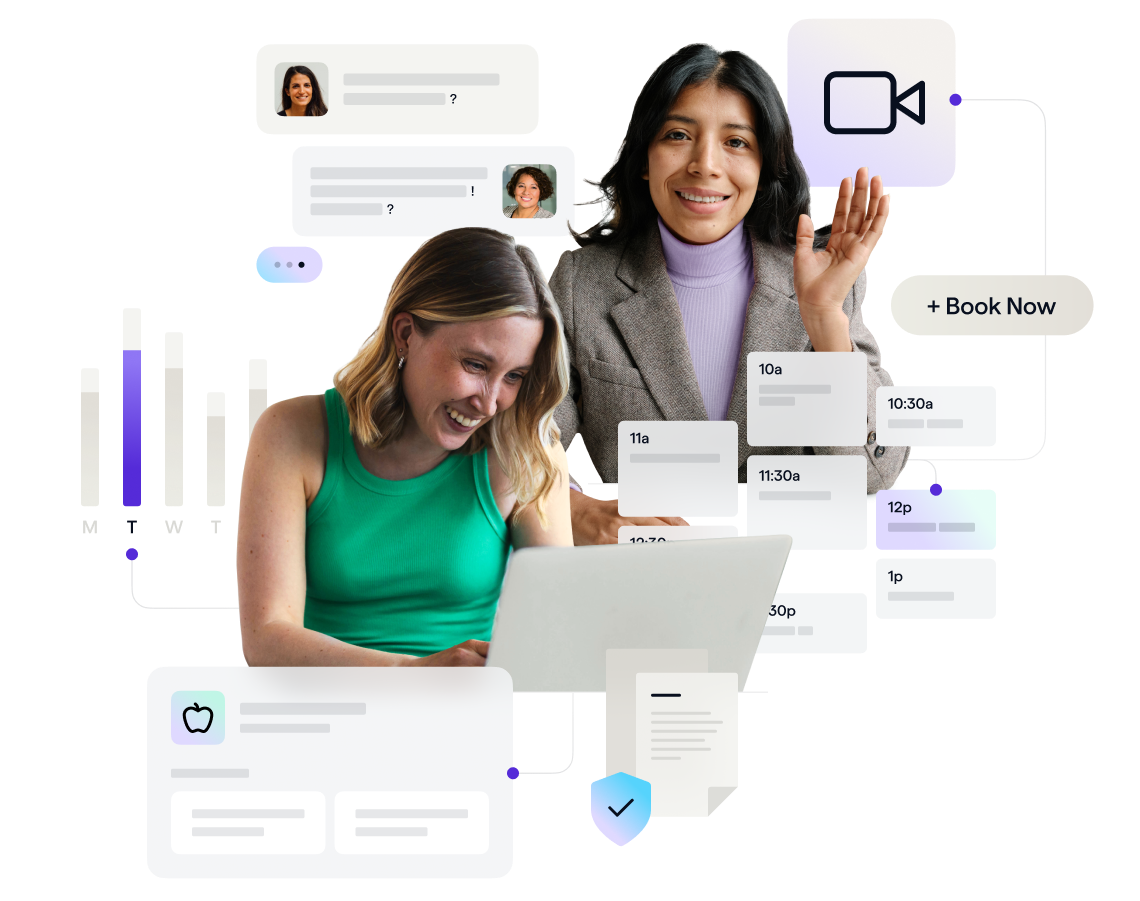

Why APIs are the future of healthcare tech
Discover why APIs are the future of healthcare technology. Read about how APIs in healthcare have transformed communication and efficiency.
Though EHR platforms have been commonplace in the hospital and in physician clinics for the past 25 years, there’s no denying that healthcare has lagged behind other industries when it comes to technological advancement. However, technology is driving a wave of innovation, and powering a new generation of digital healthcare companies that are focused on tackling key trends we’re seeing in healthcare, with the common goal to help people lead healthier lives. As technology enables more care to occur outside of the hospital, we’re seeing a shift towards a refreshed industry that prioritizes prevention and virtual care, and the emergence of companies launching services to build an ongoing relationship with clients to facilitate proactive, personalized, and non-reactive care.
As we have seen in recent years with other industries, like fintech and consumer tech, APIs are an important part of innovation in healthcare. APIs have made their mark across the commonplace consumer platforms that we use in our daily lives, whether that be in finance, travel, and eCommerce. Leveraging APIs is developer friendly, less-expensive, and enables companies to focus on building the unique attributes of their business offering. The advancements in these industries show us that healthcare technology should also make use of APIs to improve speed of innovation, connectivity across platforms, and quality of product, without compromising on key security and privacy measures like HIPAA and SOC-2 Compliance.
A new future for the health tech ecosystem
Historically, and unfortunately, EHR systems that pervade hospitals today were built as closed systems, intentionally designed to not interoperate with others. While this has led to behemoth EHR platforms in the hospitals, it unfortunately has made it historically difficult for patient data to be shared across systems, wasted time across platforms, and repetitive building of common feature sets in all of these platforms.
Fortunately, digital health companies today are taking a modern, collaborative approach, recognizing the value of secure APIs to save time, avoid re-creating the wheel, and fostering cross-platform collaboration, which will invariably facilitate a better client experience built on modern tech platforms. Closed system development is becoming a thing of the past with APIs becoming readily evaluable, making way for more collaboration and innovation than ever before.
How APIs improve digital health development
Speed to launch and scale
Prior to the availability of APIs in healthcare, each digital health startup would need to rebuild core, required features - tools like charting and intake form features, engagement and remote patient monitoring tools, telehealth capabilities, insurance billing, and more. This led to nascent digital healthcare startups investing millions each year on tech, in addition to offering services, which is actually the core of their business (and revenue driver).
In the last five years, APIs have truly shifted the D2C health tech landscape, as startups can leverage APIs for core functionality, focusing on services, branded programs, and unique ways to build relationships with clients. For example, rather than building out calendar functionality or the ability to offer online assessments, developers can now focus on perfecting their company’s secret sauce, leveraging existing APIs for feature suites like EHR, Coaching Software, and Telehealth. Leveraging existing infrastructure, means that the days of redundant software development are over. Instead, companies can reallocate resources into what matters most: finding new and creative ways to improve patient care.
Health tech that addresses a wider variety of conditions
The changes happening in health tech are combating the “one size fits all” nature of traditional healthcare. D2C healthcare platforms that leverage technology to address specific health issues mean that whether a patient’s condition is common or quite rare, simple or complex, they will be able to access highly specialized, personalized care. Moreover, digital marketing has made it better than ever to identify and share service offerings with these relevant audiences. Health tech dollars can go into providing premium client experiences, versus re-creating core, HIPAA-compliant EHR and Coaching feature suites.
Personalizing healthcare
Studies suggest that 71% of consumers are somewhat frustrated with their typical healthcare experience. Complaints include long wait times, impersonal visits, a confusing and complex path to accessing care, and a lack of digital communication channels. 75% indicate that they would like their healthcare to be more personalized.
Innovators in the digital health world are able to address these concerns by creating data-driven platforms that are tailored to the needs of certain demographics or those with particular risk factors. Advanced matchmaking queries can be used to pair providers with clients based on expertise, specialty, insurance, geography, and specific needs. Patients’ past experiences can even be leveraged to inform and predict which healthcare services they may need in the future.
Reshaping healthcare with APIs
A steadily growing interest in preventative, longitudinal, outside-of-hospital care has led to a new wave of innovative direct-to-consumer startups reshaping the world of healthcare and in health tech.
Today, many developers are inspired by advancements in the fintech and consumer tech industries. Thanks to APIs, we’re seeing a new wave of healthcare technology companies who are ready to innovate and meet the ever-increasing demand for patient-centered virtual care.
If you’re interested in using this technology to take your place at the forefront of the healthcare revolution, contact us to see if Healthie’s API is right for you.





